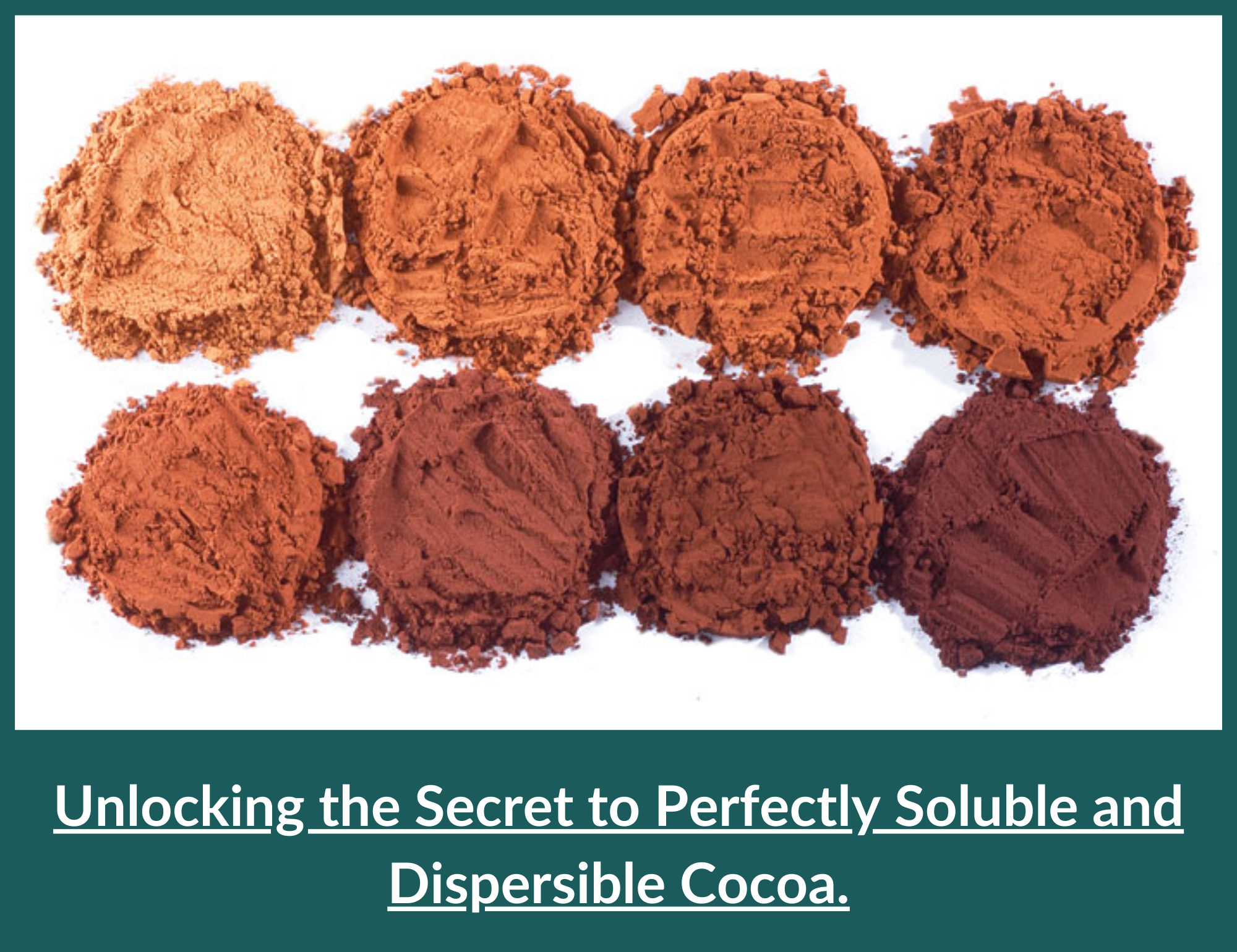Cocoa powder is a popular ingredient in many food and beverage products, including chocolate drinks, baked goods, and chocolate confectioneries. Producing cocoa powder involves several steps, including roasting, grinding, and pressing.
In recent years, many manufacturers have begun using alkalization to improve the flavour and colour of the final product. In this article, we will investigate the effect of alkalization on the solubility and dispersibility of cocoa powder.
The Alkalization Process of Cocoa
Alkalization is a process that involves adding an alkaline substance, such as potassium carbonate, to the cocoa powder to raise its pH level. This process neutralises the natural acids in it and reduces bitterness, resulting in a milder, smoother flavour.
The pH level can be adjusted to produce different levels of alkalization, ranging from light to dark. The lightest alkalized cocoa powders are typically the mildest in flavour, and the darkest is the most intense.
Solubility
One of the main factors affecting the solubility of cocoa powder is the pH level. Alkalization raises the pH level of the cocoa powder, which can increase its solubility in water and other liquids.
Better solubility can make the powder easier to dissolve in liquid, resulting in a more homogeneous mixture. Increased solubility can also make it easier to incorporate into other food products, such as chocolate drinks and baked goods.
Dispersibility
IMPROVED DISPERSIBILITY
Another factor affecting the dispersibility of cocoa powder is particle size. Alkalization can result in a reduction in particle size, which can improve the dispersibility of the powder, which means that the powder will be more evenly distributed in liquid and will not settle to the bottom of the mixture.
Improved dispersibility can also produce a more consistent flavour in food and beverage products. The cocoa powder will be more evenly distributed throughout the product.
Alkalization significantly affects the solubility and dispersibility of cocoa powder. The process can improve solubility and dispersibility, making the powder easier to dissolve and distribute in food and beverage products. However, it also has some drawbacks, such as reducing the antioxidant and flavonoid content of the cocoa powder and resulting in a loss of flavour complexity.
Ultimately, using alkalized or natural cocoa powder will depend on the desired end product and personal preference.
Now you can revolutionize your ingredient manufacturing process with EasyBuy’s one-stop solution to source high-quality Alkalized Cocoa Powder.
Don’t miss out on the best deals and seamless procurement experience. Purchase now with EasyBuy!
Citations
- Dolan, K. D. (2010). The Science of Chocolate. Royal Society of Chemistry.
- Wan, Y., Vinson, J. A., & Etherton, T. D. (2004). Cocoa antioxidants and cardiovascular health. American Journal of Clinical Nutrition, 79(1), 227-234.
- Hur, S., Lee, H., & Lee, J. (2010). Alkalization of cocoa powder and its effect on the quality characteristics of chocolate. Journal of Food Science, 75(5), S354-S360.
- Monagas, M., Gálvez, A., Olivares, M., & Bartolomé, B. (2010). Cocoa and chocolate polyphenols: implications for cardiovascular health. Molecular Nutrition & Food Research, 54(7), 969-978.
- Janszky, I., Mukamal, K. J., Ljungberg, B., de Faire, U., & Ahlbom, A. (2006). Chocolate consumption and mortality following a first acute myocardial infarction: the Stockholm Heart Epidemiology Program. Journal of Internal Medicine, 259(2), 247-257.








